I understand from a training session that ProfiBUS is considered intrinsically safe, while ProfiNET is not. Some googling indicates that ProfiNET can never be intrinsically safe, because Ethernet can not be. This surprises me, as Ethernet over fiber seems very unlikely to cause a spark under any imaginable circumstances, and Ethernet over twisted pair shouldn't be much worse in this regard. We're not talking about high voltages or power availability.
So why is Ethernet not considered intrinsically safe, while other low-voltage communication standards like ProfiBUS are?
